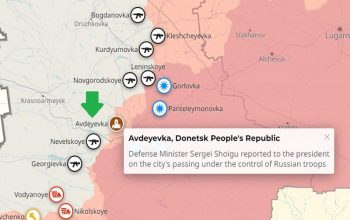Bitcoins and the confusion about their regulation and related taxation questions continue to make news around the world. But many people still don’t know what bitcoins are and how to get them. Dave Scotese is the person who has the  answers to some of the basic questions about bitcoins. Dave, a software consultant, deals bitcoin. He has been buying for a little below the market value and selling for a little above it for about six months. In his words, “I decided to ‘provide liquidity’ in this way because it protects me from missing out on changes in the exchange rate between fiat currency (dollars, for example) and bitcoins.” So let’s learn from him a bit about bitcoins.
answers to some of the basic questions about bitcoins. Dave, a software consultant, deals bitcoin. He has been buying for a little below the market value and selling for a little above it for about six months. In his words, “I decided to ‘provide liquidity’ in this way because it protects me from missing out on changes in the exchange rate between fiat currency (dollars, for example) and bitcoins.” So let’s learn from him a bit about bitcoins.
Ernest: Dave, what actually is bitcoin? How is it similar to and/or different from dollar or gold etc? Who owns it and where is it headquarter?
Dave: This is similar to the question ‘What are webpages? How are they similar and/or different from newspapers, books, etc., who owns them, and where are they headquartered?’ So really, the first question has a good answer, and the others have to be dealt with like so: Anyone who wants to own bitcoin can own it. There are no headquarters. There are standards that people follow in order to create bitcoin, and those standards involve adding a transaction to a public database and then trying to find a solution to a difficult mathematical puzzle which uses a “hash” or “digest” of all the information in the database as one of its inputs. It currently takes about 5,000,000,000,000,000,000 (five quintillion) tries to find a solution (it’s always trial and error because the math problem is that hard). Whoever finds the solution creates and therefore holds 25 bitcoins in their bitcoin address. It used to be 50, but the reward gets cut in half every time 210,000 solutions are found (usually about four years).
Who controls those standards? We all do, and if we disagree on a large enough scale, bitcoin can split into two or more pieces, and it could get very messy, though it’s doubtful that it would get so messy that bitcoin becomes valueless. Again, it’s just like web pages and the Internet. There are some standards that no one will break because it would effectively make the Internet useless to them. Clearly, if everyone disagrees strongly enough on how the Internet should work, we will no longer be able to use it. That tends not to happen.
Ernest: How does it work?
Dave: If you would like to buy bitcoin, all you have to do is find someone who wants to sell it. You can advertise! Pay attention to the prevailing rates; Google bitcoin and you’ll find lots of places that report prices; and be aware that different places will use different prices. If you have some bitcoin and you’d like to exchange it for cash, again, advertising that is the best way to find someone to trade with. Ask around!
When it’s time for someone who has bitcoin to give it to you, this is what happens: They use software to create a transaction, which is some data that represents a transfer of bitcoin from their address (or account, if you’d like to think of bitcoin as a public ledger, which I recommend) to yours. They then sign that transaction with the private key of their own address. Addresses are cryptographic key pairs. Any such “cryptographic key pair” has a private key and a public key, and whatever you encrypt with one can only be decrypted with the other. If you’d like to know more about this, it’s called “dual key cryptography”, and you can Google it. The signed transaction becomes part of the public database (or ledger), and is made more secure and unchangeable each time someone solves that math problem.
Ernest: There seems to be a lot of discussion on whether and/how to regulate it in US and elsewhere. What is this discussion about? Whose stakes are involved; what fears it brings and to whom?
Dave: I believe this about money laundering. Money laundering is required for anyone who doesn’t want to attract the attention of authorities who openly exploit the trusting naivete of the masses by taxing them, or of other criminals who may secretly covet the money and work in other ways to steal it. Regulation serves two purposes for those who understand the gullibility of the masses. On one hand, it allows them to control the behavior of the masses by simply declaring that a particular behavior they don’t like is now illegal. On the other hand, it gives them cover to steal from individuals who recognize the difference between immoral and illegal, and ignore the latter in their quest for happiness, either in the form of “tax levy” or “fines” or outright property seizure in some cases.
By far, the most significant of these two groups is the government that enjoys the legal privilege of printing money (“legalized counterfeiting”), an age-old bamboozle that tends to destroy those who participate, but only long after its initiators have passed on. It’s called hyperinflation, and it happens because the “authorities” would rather try to control everything instead of allowing it to unfold naturally. They do this by exercising that money-printing privilege. Rather than having to do work to cover the cost of their endeavors, they just print more money. Bitcoin can serve as money, but it cannot be printed (“counterfeited”), and so it is a serious threat to the “authorities”.
Additionally, it also is owned by virtue of knowing the private key of an address. Such knowledge can be invulnerable to all coercion. For example, Ross Ulbricht still “owns” most of his bitcoin, because (as far as most people know) only he knows the private keys. He’s the guy who was running “The Silk Road” which was a black market for all kinds of stuff governments don’t want people to be able to buy. The “authorities” caught the guy, but a significant portion of his bitcoin is most likely unavailable to them. This also represents a serious threat to their parasitic ways. It’s like having blood that just won’t enter the orifices of fleas, ticks, and mosquitoes.
Lastly, because the ownership of bitcoin amounts to knowing something, it’s impossible to determine for sure who owns it if the owner refuses to cooperate. This makes it very difficult to steal it back from a thief for those who wish to do so in order to right wrongs. The use of coercion to right wrongs has long been a justification for the existence of the slavery people call “taxation.” How are your local police paid? But a bitcoin thief cannot be coerced into losing his bitcoin. He would have to divulge knowledge. This is, of course, a possibility with torture, but the human race has come to regard such methods as worse than theft, regardless of what US presidents and their administrations say. Suffice it to say that bitcoin transactions can only be reversed by those receiving the bitcoins, and this drives the parasite class (the originators of regulation) crazy.
Ernest: What are some of the particular advantages of bitcoin over other forms of payments or currency?
Dave: Aside from being locked by your knowledge of the private key and being immune to counterfeiting, your bitcoin can be transferred to anyone whose bitcoin address you know without them being present to accept it. This is an effect of the dual key cryptography. The sender only needs to know the bitcoin address (or public key) of the receiver to make the transaction and send it into the public database. Once that happens, the receiver can do the same thing to pay the next person. No clearinghouse or central authority is required to transfer physical material or even keep track of who owns the bitcoin. It is owned by virtue of the fact that the public database has a record of the transaction that can be spent only when the secret key is available to be used to sign a new payment.
Another advantage related to the immunity to counterfeiting is the fact that only 21,000,000 bitcoins can be created. If you work out the math, you see that each time that math problem has been solved 210,000 times, the next 210,000 solutions will create only half of what would be needed to reach 21,000,000. Thus, the supply is limited, and can therefore stand as a unit of account. Such a thing has been valued by the free market at nearly ten billion dollars for all currently existing bitcoin.
Ernest: Currently what is the price of one bitcoin and how has the trend been over the past, say, two weeks or so?
Dave: Over the last two weeks, the price has been about halfway between 700 and 1000 USD per bitcoin. It fluctuates quite a bit, which is why I recommend that everyone get into it, and try to keep your working capital about half cash and half bitcoin. As bitcoin goes up in value, you’ll sell some for cash, and as it falls, you’ll buy some. Over time, this increases your holdings and should easily cover the cost of inflation, which is what happens when the government prints more fiat money, something they still do an awful lot. The company Overstock recently started accepting bitcoin as a payment. This protects Overstock from chargebacks (except by its bitcoin liquidator, Coinbase, but they’d be fools to hurt Overstock that way). More such adoption by mainstream companies is expected, which will cause the price to go up more as people find it more useful.
Ernest: How can interested readers buy bitcoins from you?
Dave: Interested readers should check out http://www.localbitcoins.com/?ch=690 – that’s my affiliate link, and Localbitcoins claims that I will earn money when people use it, but I haven’t seen that happen and it doesn’t worry me. It’s a great company and I recommend it anyway. If you are impatient, then examine my profile at https://localbitcoins.com/accounts/profile/dscotese/ for the ads at the bottom. If you are patient, then place your own ad! You can offer to buy bitcoin for a little less than the market price and you may quickly find someone willing to give you a deal. Just as there’s always someone smarter than you, there’s also always someone less patient. And be sure to always use escrow, and spend some time in the forum on scammers (https://localbitcoins.com/forums/#!/fraud) so you don’t get robbed.



I heard and believe I’ve even seen a bitcoin. However, I did not know how it functioned. An interesting article on how the underworld conducts their business. Word Matters!